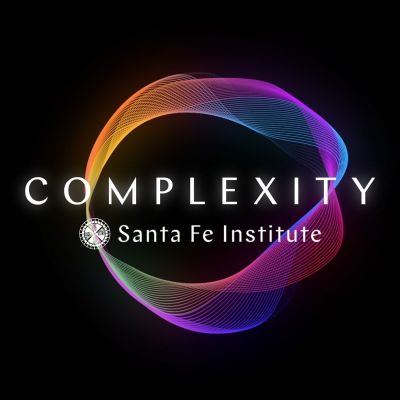Are there universal laws of life and can we find them? Is there a physics of society, of ecology, of evolution? Join us for six episodes of thought-provoking insights on the physics of life and its profound implications on our understanding of the universe. In this season of the Santa Fe Institute’s Complexity podcast’s relaunch, we talk to researchers who have been exploring these questions and more through the lens of complexity science. Subscribe now and be part of the exploration!
https://complexity.simplecast.com
episode 70: Lauren Klein on Data Feminism (Part 1): Surfacing Invisible Labor
When British scientist and novelist C.P. Snow described the sciences and humanities as “two cultures” in 1959, it wasn’t a statement of what could or should be, but a lament over the sorry state of western society’s fractured intellectual life. Over sixty years later the costs of this fragmentation are even more pronounced and dangerous. But advances in computing now make it possible for historians and engineers to speak in one another’s languages, catalyzing novel insights in each other’s home domains. And doing so, the academics working at these intersections have illuminated hidden veins in history: the unsung influence and cultural significance of those who didn’t write the victors’ stories. Their lives and work come into focus when we view them with the aid of analytic tools, which change our understanding of the stories we’ve inherited and the shape of power in our institutions. One strain of the digital humanities called data feminism helps bring much-needed rigor to textual study at the same time it reintroduces something crucial to a deeper reconciliation of the disciplines: a human “who” and “how” to complement the “what” we have inherited as fact.
Welcome to COMPLEXITY, the official podcast of the Santa Fe Institute. I’m your host, Michael Garfield, and every other week we’ll bring you with us for far-ranging conversations with our worldwide network of rigorous researchers developing new frameworks to explain the deepest mysteries of the universe.
This week we talk to Emory University researcher Lauren Klein, co-author (with Catherine D'Ignazio) of the MIT Press volume Data Feminism. In Part 1 of a two-part conversation, we discuss how her work leverages the new toolkit of quantitative literary studies and transforms our understanding of historical dynamics — not just in the past, but those in action as we speak…
For Part 2 in two weeks, subscribe to Complexity wherever you listen to podcasts — and if you if you value our research and communication efforts, please rate and review us at Apple Podcasts and/or consider making a donation at santafe.edu/give.
You can find numerous other ways to engage with us — including job openings and open online courses — at santafe.edu/engage.
Thank you for listening!
Join our Facebook discussion group to meet like minds and talk about each episode.
Podcast theme music by Mitch Mignano.
Follow us on social media:
Twitter • YouTube • Facebook • Instagram • LinkedIn
Related Reading & Listening:
Data Feminism by Catherine D'Ignazio & Lauren Klein
“Dimensions of Scale: Invisible Labor, Editorial Work, and the Future of Quantitative Literary Studies” by Lauren Klein
Our Twitter thread on Lauren’s SFI Seminar (with video link)
Cognition all the way down by Michael Levin & Daniel Dennett
Complexity 34 - Better Scientific Modeling for Ecological & Social Justice
Complexity 42 - Carl Bergstrom and Jevin West on Calling Bullshit: The Art of Skepticism in a Data-Driven World
Complexity 45 - David Wolpert on the No Free Lunch Theorems and Why They Undermine The Scientific Method
Complexity 64 - Reconstructing Ancient Superhighways with Stefani Crabtree & Devin White
Mentions Include:
Ruha Benjamin, Joy Buolamwini, Julia Lefkowitz, Ted Underwood, Derrick Spires, David Wolpert, Farita Tasnim, Stefani Crabtree, Devin White, Donna Haraway, Carl Bergstrom, Joe Bak-Coleman, Michael Levin, Dan Dennett
